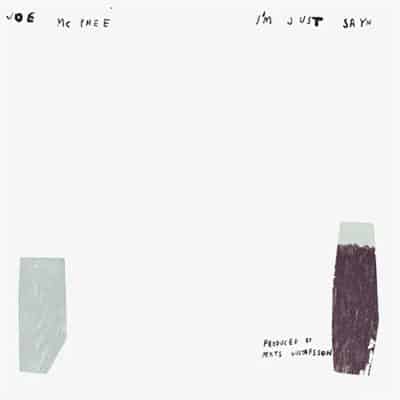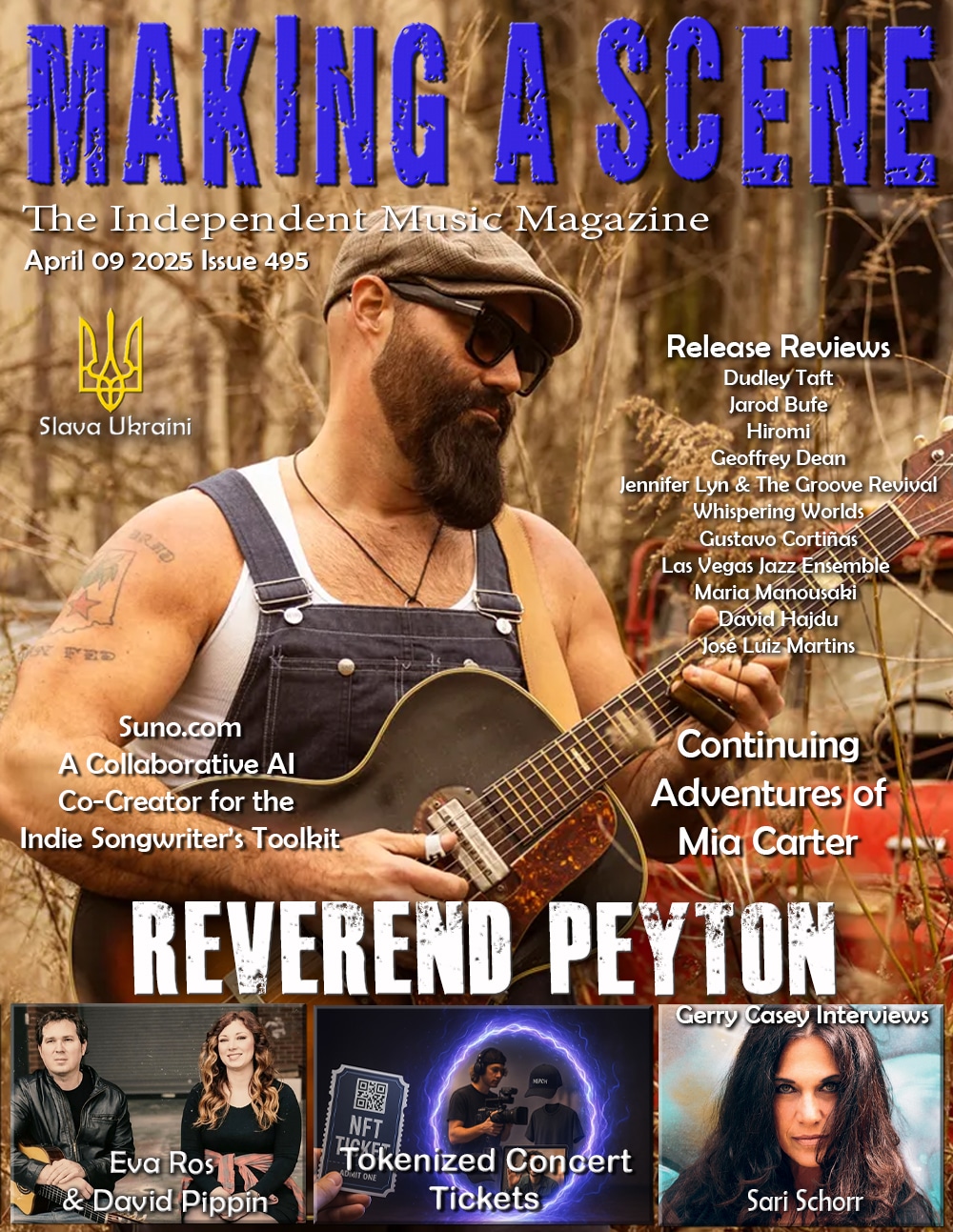Joe McPhee I’m Just Say’n
 Joe McPhee
Joe McPhee
I’m Just Say’n
Smalltown Supersound
For those of us that miss the free jazz poetry of Ken Nordine (‘50s), Amiri Baraka (‘60s), and The Last Poets and Gil Scott-Heron in the ‘70s and ‘80s, we welcome in Joe McPhee. Spoken word free jazz is rare although we do hear snippets of it in various albums. McPhee was a pivotal figure in NYC’s ‘70s loft scene, playing trumpet, tenor saxophone, trombone, and writing poetry. This cat’s been around and seen plenty. His second LP in the ‘70s “Nation Time” on tenor saxophone is considered a classic and “Black Magic Man,” issued during the same period was also critically acclaimed as was his 1976 Hat Hut “Tenor,” a solo unaccompanied recording. Dig deep and you’ll find a slew of McPhee records, some on trumpet, some duets with electronic musicians. McPhee formed close alliances with European musicians earlier than most Americans, assembling bands in France and Switzerland and later in the UK and Germany. He worked extensively with experimental composer Pauline Oliveros and was a member of Peter Brötzmann’s Chicago Tentet, at which time he began playing with saxophonist and flautist Mats Gustafsson as he does here on “I’m Just Say’n.”
Octogenarian McPhee remains solely immersed in free improvised music. He works with several steady ensembles and in many ad hoc settings. Corbett vs. Dempsey, who have issued many of his recordings, have just published his memoir, co-written with Mike Faloon, ”Straight Up, Without Wings: The Musical Flight of Joe McPhee.” McPhee has been writing poetry since the 1970s, although he’s only started to read and recite poems in performance over the last decade. In 2024, he issued his first record focused on poetry, ”Musings of a Bahamian Son,” and plans are to publish a book of his poetry soon.
Here McPhee approaches words as if they were instrumental sounds, leveraging his improvising skills with Gustafsson, who plays woodwinds and electronics. In these eleven tracks McPhee ruminates on past scenes in NYC to contemporary U.S. politicians to eras of music and witty imitations of former colleagues such as Brötzmann as he does on the opening “Short Pieces” to Gustafsson’s skronk and percussion. Besides the imitations of the German accent, he delivers that one in a fairly straightforward cadence, which becomes even calmer and relaxed in “When I Grow Up,” ending in cosmic fashion, “this angel got his wings.” His observations are often perceptive, derived from exposure to so many cultures, music, and arts yet at other times, they are abstract or intent on having fun. He begins “They Both Could Fly” with a riddle – “What’s the difference between a bird and a turtle? And a child’s answer – they both could fly.” McPhee continues by making a series of statements and analogies about freedom.
He becomes animated on “Guitar’ backed by Gustaffson’s array of bizarre sounds, increasingly waxing on other instruments, stereotypical notions, history, and other subjects,(‘revolution, prostitution, institution”) at times practically singing. In the title track he reflects in a mix of spoken words and singing about his time with The Chicago Tentet, essentially urging us all to keep moving forward. He begins “NYC Nostalgia Redux” almost jeering at the anthem “New York, New York,” before commenting on subways, a sleazy Times Square, and the subsequent ensuing police state and ‘cleanup’ efforts in a rhythmic cadence all his own.
Gustafsson sets a haunting, disorienting soundscape for “The Dreams Book” to the extent that it unfortunately overwhelms McPhee’s spoken words which seem to be equally as foreboding until the end when he repeats the line several times -”The only keys we have are the keys in our heart.” He begins “Words” over Gustafsson’s low toned sax, with a reflection on the pandemic and those we’ve lost, the non-violent protests of good trouble, moving into a series of rhymes and single words, often without any accompaniment. His words are provocative, just single statements that conjure all kinds of thoughts. His unaffected, confident voice is the constant throughout, mostly poised and confident but often on the verge of spilling vitriol too as he does in the visceral, politically drenched “Disco Death.” In “BYOBB” he sings about the welfare state with a hipster cadence – “Annie’s got a baby and can’t go to work no more.” Closer “Lune Rouge” leans more abstract.
McPhee speaks his mind like few others. Soak in his wisdom and just his ability to wax eloquent with words. Like me, you won’t get all of it, but that’s what will have you coming back to try to piece it together. Strong as steel, McPhee is indefatigable.
– Jim Hynes
Buy Us a Cup of Coffee!
Join the movement in supporting Making a Scene, the premier independent resource for both emerging musicians and the dedicated fans who champion them.
We showcase this vibrant community that celebrates the raw talent and creative spirit driving the music industry forward. From insightful articles and in-depth interviews to exclusive content and insider tips, Making a Scene empowers artists to thrive and fans to discover their next favorite sound.
Together, let’s amplify the voices of independent musicians and forge unforgettable connections through the power of music
Make a one-time donation
Make a monthly donation
Make a yearly donation
Buy us a cup of Coffee!
Or enter a custom amount
Your contribution is appreciated.
Your contribution is appreciated.
Your contribution is appreciated.
DonateDonate monthlyDonate yearlyYou can donate directly through Paypal!
Subscribe to Our Newsletter
Discover more from Making A Scene!
Subscribe to get the latest posts sent to your email.












































